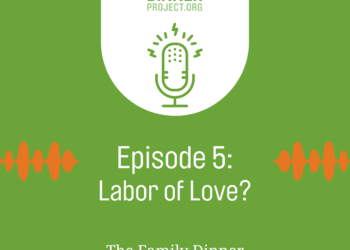[ad_1]
Key takeaways for caregivers
- Moms and dads present comparable patterns of mind exercise when uncovered to stimuli from their toddler.
- The noticed mind adjustments happen in areas concerned with reward, motivation, and empathy, and are related to hormonal adjustments in mothers and dads.
- Mind techniques could replicate parental potential accessible to human fathers and different mammalian fathers when they’re extra concerned in caregiving.
Fathers’ brains reply when they’re uncovered to stimuli from their child
The neurobiology of fatherhood in people appears to be just like the neurobiology of motherhood, involving two mind techniques – a “motivational” system that refers back to the drive to nurture offspring, and an “empathy” system that refers back to the means to know the ideas and emotions of others.
Fathers proven photos of their very own newborns skilled extra activation of empathy and reward techniques than when proven photos of unknown newborns.
For instance, mind responses of moms and dads to photos or movies of their infants overlap. Elevated exercise is present in elements of the mind related to reward, motivation, and empathy. In a single research, elevated exercise in mind reward techniques additionally correlated with the daddy’s lively engagement in caregiving, as reported by the mom.
In one other research, fathers proven photos of their very own newborns skilled extra activation of empathy and reward techniques than fathers proven photos of unknown newborns. In one other research, a brand new father’s self-reported constructive ideas about his toddler correlated with reward system activation in response to his toddler’s cries. Future analysis will have a look at different mind responses in fathers – to kids’s laughter, speech, and actions.
Mind adjustments are related to hormonal adjustments activated by concerned parenting
There’s growing evidence that these adjustments are linked with the hormones which are produced when fathers care for his or her kids. The important thing distinction between human moms and dads is the diploma of variability in fatherhood. After beginning, most moms are actively concerned in parenting, however fatherhood is activated solely when circumstances require or enable it, and even then it’s extremely variable.
When fatherhood is activated, neural processes happen in fathers which are just like these in moms.
In societies with small household items residing aside from prolonged household networks and in households with scarce assets, paternal involvement is critical. When fatherhood is activated, neural processes take place in fathers that are similar to those in mothers. It’s as if a parental potential resides in all people and is activated when circumstances require.
Within the wild, fathers are actively engaged in caring for his or her younger in solely 5% of mammalian species (e.g., some primates, rodents, and canids, specifically). As in people, this paternal habits entails comparable mind processes as these concerned with maternal habits. However when animals are held in captivity and in non-natural circumstances, fathers can develop into extra lively. This implies that parental mind techniques could exist in lots of male mammals, and that they are often activated when an lively paternal position is fascinating or doable.
[ad_2]
Source_link





